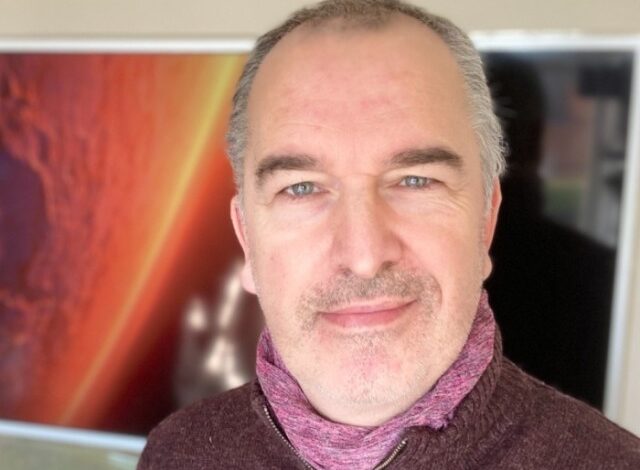Jonathan Amos – The Voice of Science, Space, and Climate Journalism

Jonathan Amos is one of the most respected British science journalists of his generation. Based in Cambridge, United Kingdom, he has devoted over three decades to explaining complex scientific ideas to the public in clear and accessible language. Known for his deep curiosity about the natural world, his long association with BBC News, and his sharp insights into space and climate issues, Jonathan Amos stands as a symbol of trustworthy science communication in the modern era. His fascination with glaciers, icebergs and the fragile polar regions has even become a personal hallmark, reflected in his self-description as being “too interested in icebergs for my own good.”
Jonathan Amos: Educational Background and Early Development
Jonathan Amos completed his higher education at the Open University in the United Kingdom, where his academic foundation shaped his ability to approach science from both analytical and human perspectives. From the outset of his career, he showed a rare gift for interpreting research findings in ways that engage a general audience. This blend of intellectual precision and communicative empathy would later define his work as one of the BBC’s leading science correspondents.
The BBC News Journey of Jonathan Amos
Beginning of a Remarkable Career
Jonathan Amos joined the BBC in the 1990s, just as the organisation was entering its digital age. He was part of the pioneering team that helped establish the BBC News website in 1997, transforming how scientific information reached the public. His early focus lay in Earth science and the environment, areas that demanded both technical understanding and the ability to convey urgency without alarmism.
Science and Space Correspondent
Over time, Jonathan Amos rose to prominence as the BBC’s science and space correspondent. His career spanned nearly three decades, including ten years as Assistant Editor for Science (1997–2007) and a further seventeen years as Science/Space Correspondent (2007–2024). During this period, he became a trusted voice reporting on global climate conferences, Antarctic expeditions, satellite launches and major discoveries in planetary science.
Transition to Freelance Journalism
In 2024, Jonathan Amos transitioned to freelance journalism after twenty-seven years at the BBC. This shift allowed him to continue exploring subjects close to his heart while contributing to multiple platforms. His independence has enabled him to cover scientific issues with an even broader scope, from polar research to space exploration and sustainable technology.
Key Themes in Jonathan Amos’s Work
Climate and Earth Systems
Jonathan Amos has spent much of his career documenting the evolving science of climate change. His reports on melting ice sheets, rising sea levels and global weather patterns have shaped public understanding of environmental urgency. He brings clarity to data-driven topics, turning numbers and satellite readings into stories of human consequence and global interdependence.
Space and Planetary Exploration
Alongside Earth science, Jonathan Amos has consistently reported on space missions, European Space Agency projects and planetary research. He recognises that space exploration is not simply about distant worlds but also about understanding our own planet better. His storytelling often connects the dots between what happens beyond Earth and the challenges we face on it.
Polar Fascination and the Cryosphere
Among his signature interests, the polar regions occupy a special place. Jonathan Amos frequently writes about ice sheets, glaciers and the cryosphere. His fascination lies not only in their beauty but also in their significance as indicators of climate health. He has reported from polar research bases, turning frozen landscapes into compelling lessons about science, resilience and responsibility.
Achievements and Recognition of Jonathan Amos
Jonathan Amos’s excellence in journalism has earned him several prestigious honours. In 2023, he received the Angela Croome Award from the European Geosciences Union, a recognition of his exceptional contribution to communicating Earth, planetary and space sciences. The citation praised his balanced reporting, his accuracy and his ability to make complex subjects both credible and captivating. The award confirmed what many already knew — that Jonathan Amos is not merely a journalist but an interpreter of the scientific age.
Jonathan Amos’s Writing Philosophy
Precision with Humanity
Jonathan Amos’s approach combines technical accuracy with narrative warmth. He understands that facts alone do not move people; stories do. His articles often begin with a human element — a scientist at work, a satellite being launched, or an iceberg breaking away — drawing readers into the broader scientific message.
Evolving with Media
As journalism evolved from print and television to digital and social platforms, Jonathan Amos adapted seamlessly. His long-standing presence on social media, particularly under the handle @JCDAmos, connects him to an audience of more than fifty thousand followers. Through concise updates, he continues to make complex subjects accessible to a global readership.
Advocacy for Solutions Journalism
In recent years, Jonathan Amos has championed “solutions journalism,” encouraging the media to highlight practical responses to global crises rather than merely reporting disasters. His view is that science journalism should empower people, not overwhelm them.
Personality and Influence
Jonathan Amos is widely admired for his calm authority, balanced tone and curiosity about everything from microscopic life to planetary dynamics. Colleagues describe him as a meticulous researcher and a modest communicator who lets the science speak for itself. His enduring interest in ice, oceans and outer space symbolises both his personal wonder and his professional dedication.
Legacy of Jonathan Amos in Science Communication
The legacy of Jonathan Amos lies in bridging the gap between science and society. His work has taught millions how interconnected the Earth’s systems truly are and why scientific literacy matters for public policy and personal decision-making. As a mentor to younger journalists, he also represents an enduring ideal of professionalism, accuracy and curiosity in a world flooded with information and misinformation alike.
Conclusion
Jonathan Amos exemplifies the best of British science journalism — informed, articulate and deeply human. From the laboratories of Cambridge to the frozen frontiers of Antarctica, his storytelling has illuminated the realities of our planet and beyond. Whether reporting on the latest satellite mission or the slow drift of an iceberg, Jonathan Amos continues to inspire trust, understanding and respect for science itself.



